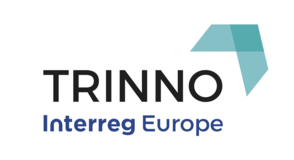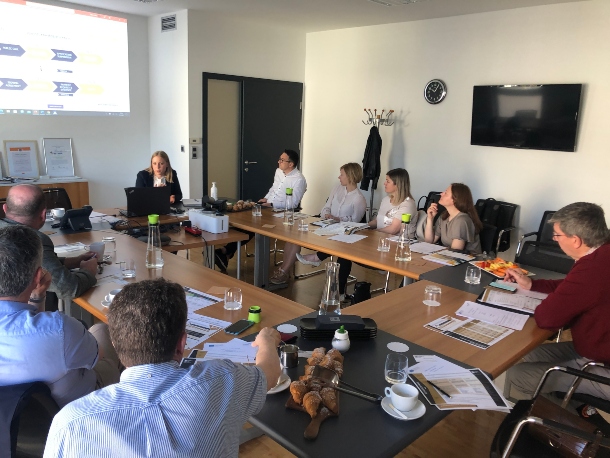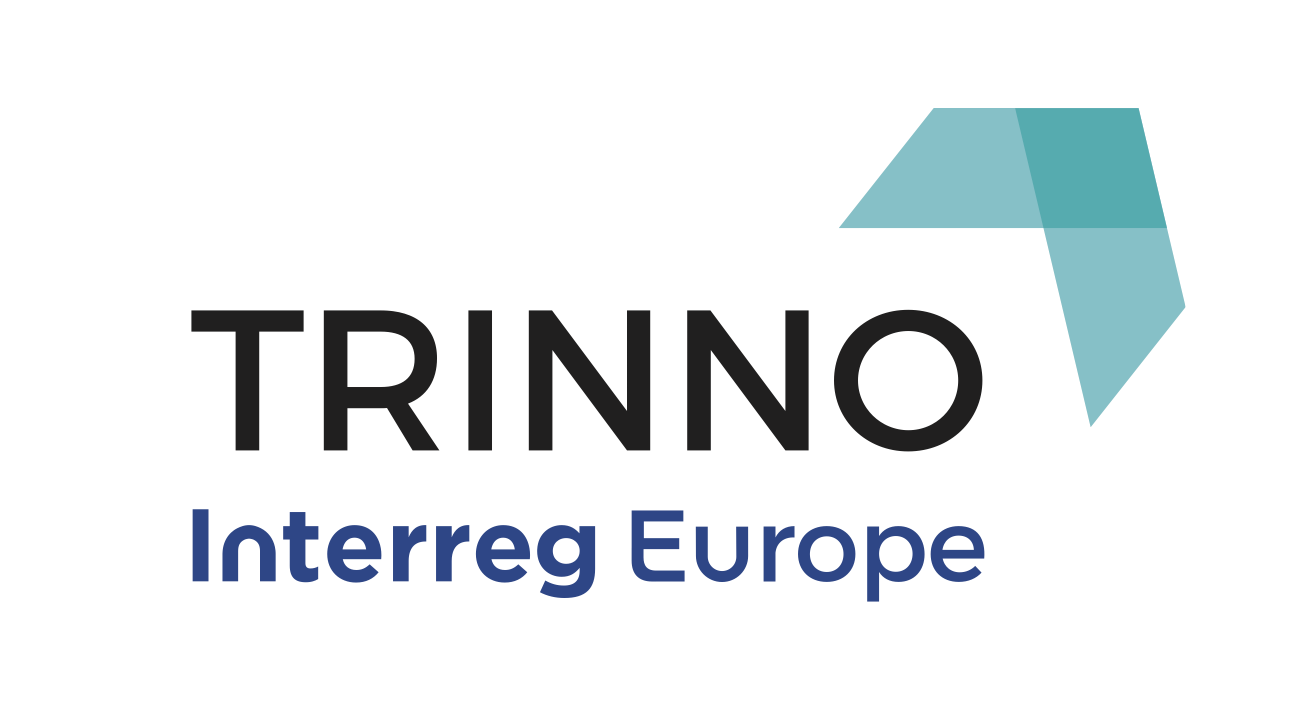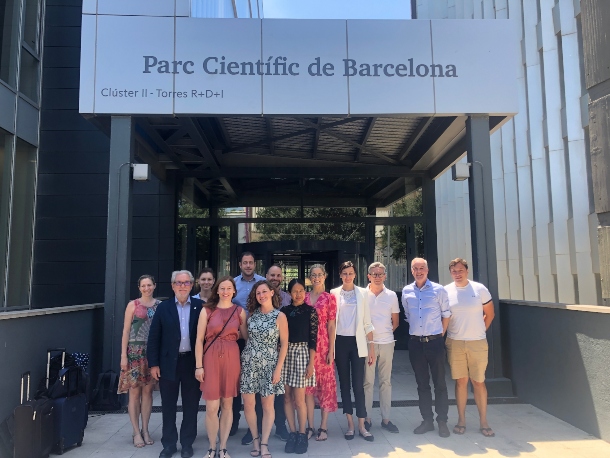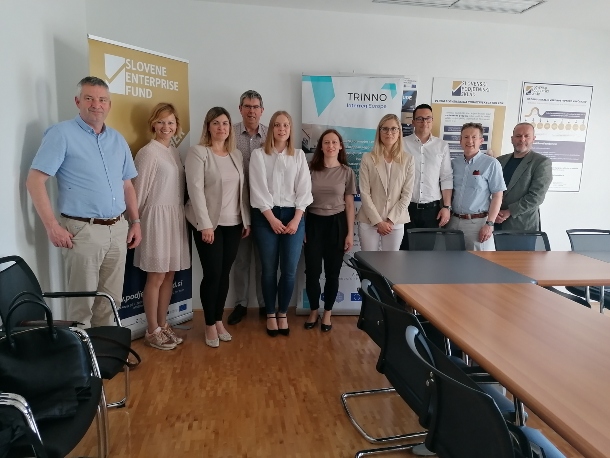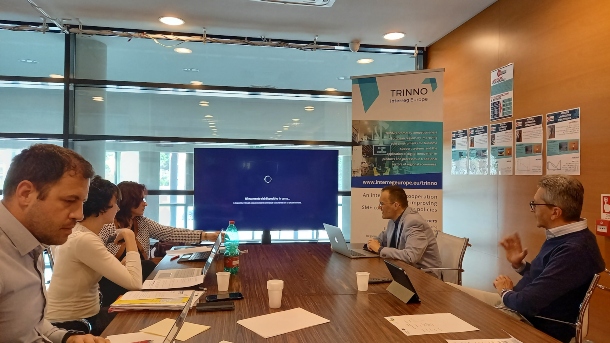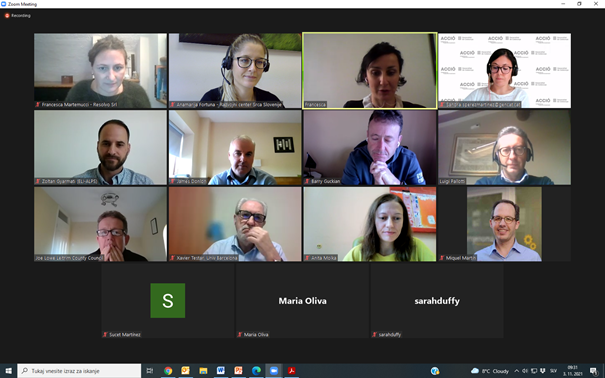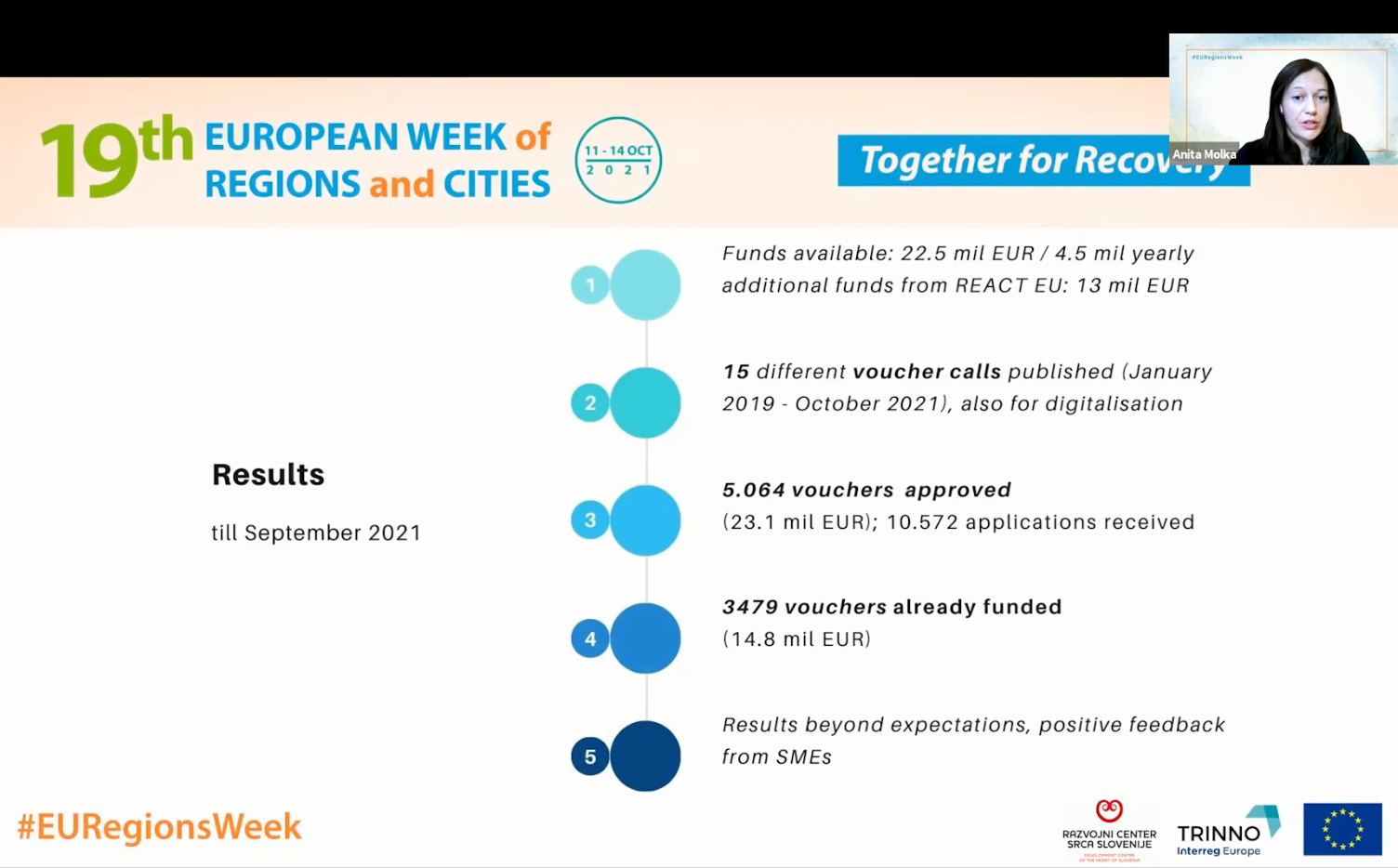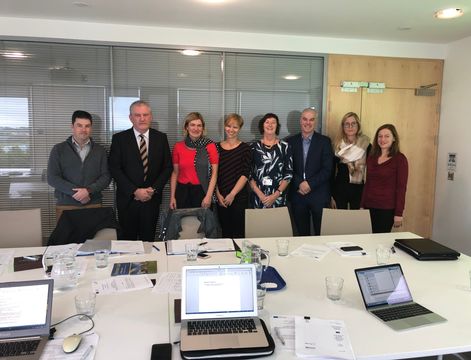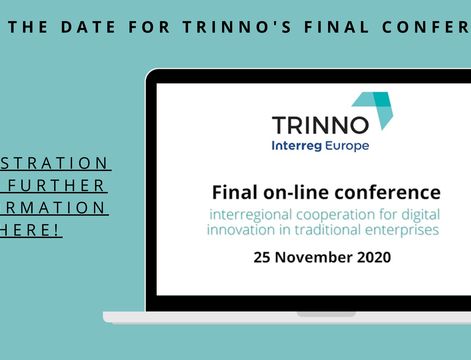The third Interregional Learning Event was organised in Arezzo and Florence (Italy) on 4 and 5 April 2017 within the TRINNO project – “Business ecosystems for Tradition and Innovation”. The event was hosted by Arezzo Innovazione, lead partner of the project, who invited representatives of regional actors to present Tuscan good practices in the field of business support ecosystems that link digital innovation to the local economy. Actors from different sectors participated at the event: local authorities, universities and research institutions, enterprise support actors and enterprises.
Discussion among partners and stakeholders of TRINNO project
Partners and stakeholders from Italy, Hungary, Ireland, Slovenia and Spain learned about the Tuscan business support ecosystem. Albino Caporale from Regional Government of Tuscany presented RIS3 and Industry 4.0 Strategy for Tuscany region. Daniele Mazzei from University of Pisa talked about good practice of FabLab and Learning Lab Pisa, a physical and virtual space to generate, share and develop ideas. Rodolfo Ademollo from City of Arezzo presented project for matching artisans with youth “Studium Aretino”. Representatives of 6 Italian SMEs from ICT, furniture, jewellery, mechanics and food sector presented their experiences on integrating digital innovation into their work. The following companies were presented as beneficiaries of policies and initiatives: e-simple, Coco&Design, Adabra, Neri Romualdo, Masterix and ItalyAddicted.
The next day TRINNO partners and stakeholders visited ISIA Firenze, a public higher education institute for Artistic Industries in Florence. Giuseppe Furlanis and Andrea Spatari emphasized the importance of practical approach in their institution which is focusing on design and the use of new technologies among students. Partners also visited Artex in Florence – regional agency for arts and crafts in Tuscany. Representatives of the centre Elisa Guidi and Sabrina Sguanci presented policies concerning crafts in Tuscany region and shown newly created artisan hub “Conventino” which hosts 26 workshops for artisans. They pointed out the opportunities from SMEs in the field of artistic and traditional crafts and the convergences between tradition and innovation. Luca Mattesini from PIN, Centre for Educational and Scientific Services for the University of Florence located in Prato presented their experience with collaborating with SMEs in the field of digital innovation.
Visiting Artex in Florence – regional agency for arts and crafts in Tuscany
Along with a focus on the local Tuscan business support ecosystem, participants also learned from example of the Library Living Lab from Barcelona (Spain) - a case how technology transforms the cultural experience of people. Jordi Garcia Brustenga from University of Barcelona, advisory partner in TRINNO project, presented latest research on how to boost innovation ecosystems and the new mission-oriented policies.
Partners discussed their initial ideas about what local business support ecosystems need to support digital innovation to the local economy. They also discussed what they achieved and what they have learned from the first year of implementation of the project and discussed what further exchange is necessary. The TRINNO project aims to identify the necessary components of business ecosystems in participating regions, to identify specific ecosystem components necessary to promote digital innovation in traditional sectors of the local economy and define measures in Regional Action Plans to introduce or develop these components.
Participants of Third TRINNO Interregional Learning Event in Tuscany
